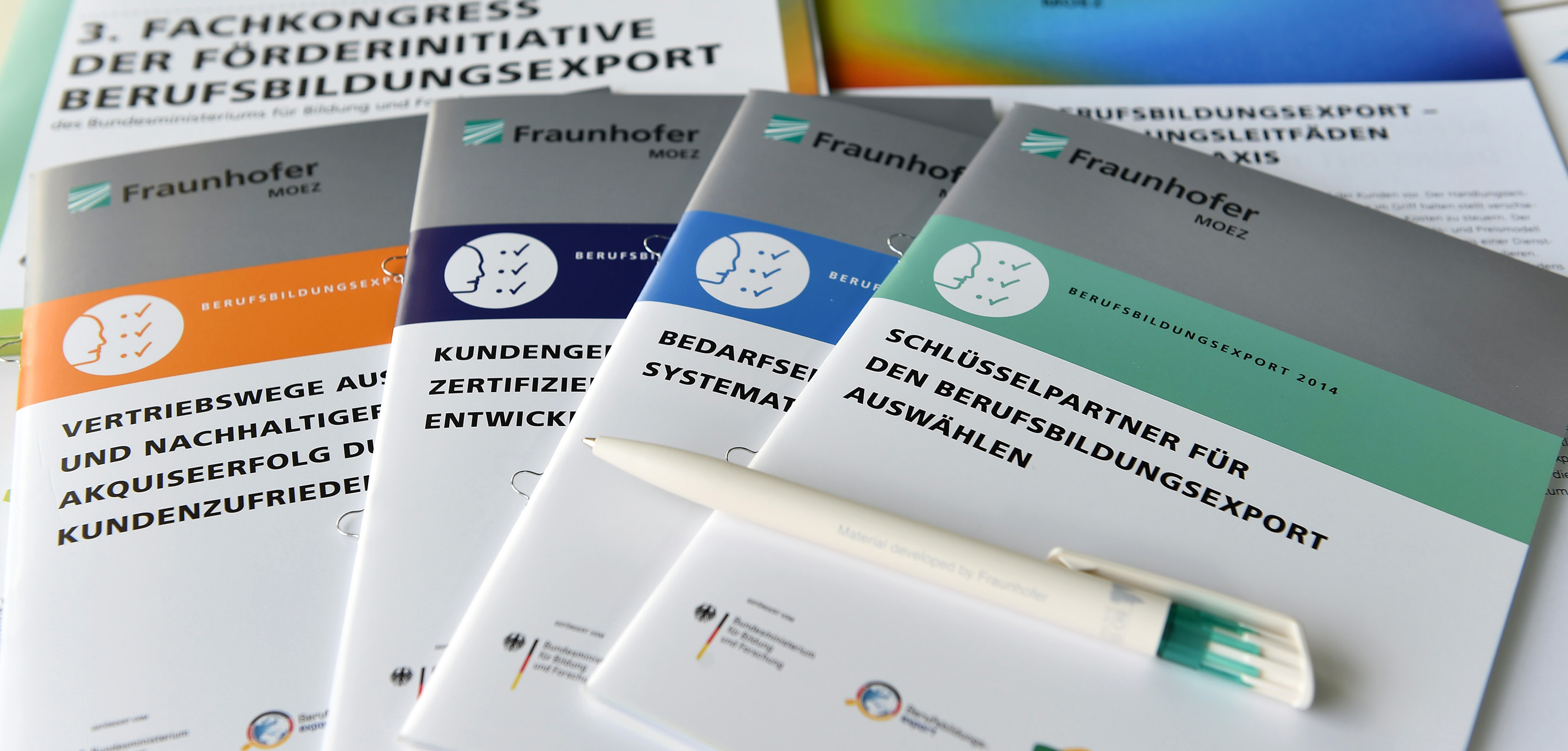Meta-project for the BMBF promotional key area “Vocational training export by German providers” goes into second phase
From 2008, the German Federal Ministry of Education and Research (BMBF) supportec the research and development of innovative approaches to export for need-based training and further education services. In this context, the BMBF promotional key area “Vocational training export by German providers” furthered the promotion of collaborative projects for the export of vocational educational services. The aim was to make a contribution towards gradually developing the export potential in the field of vocational education and to establish the supply of German vocational training in economically emerging target regions for the long term.
Since June 2011, Fraunhofer IMW has been supporting the meta-project “Driving and inhibiting factors of vocational training export”, which was sponsored by the above-mentioned BMBF promotional key area. In the pilot phase of the meta-project (June 2011 to May 2012), the institute empirically gathered and recorded information on the principle topic areas, such as the forms of cooperation at home and abroad and the forms of demonstration and visualization for German vocational training export. As of November 2012, the meta-project was in its main phase and the preliminary work was being supplemented by a highly business-oriented perspective. The central goal of the meta-project was to generate scientifically substantiated insights into the export of vocational educational services at a meta-level, to process them with a practical focus and to communicate them to export-oriented vocational training service providers in Germany. The emphasis here is on the analysis of empirically observable business models and the underlying processes. Furthermore, Fraunhofer IMW made a significant contribution towards the exchange of experience and networking between the relevant actors through topic-related workshops and conferences.

